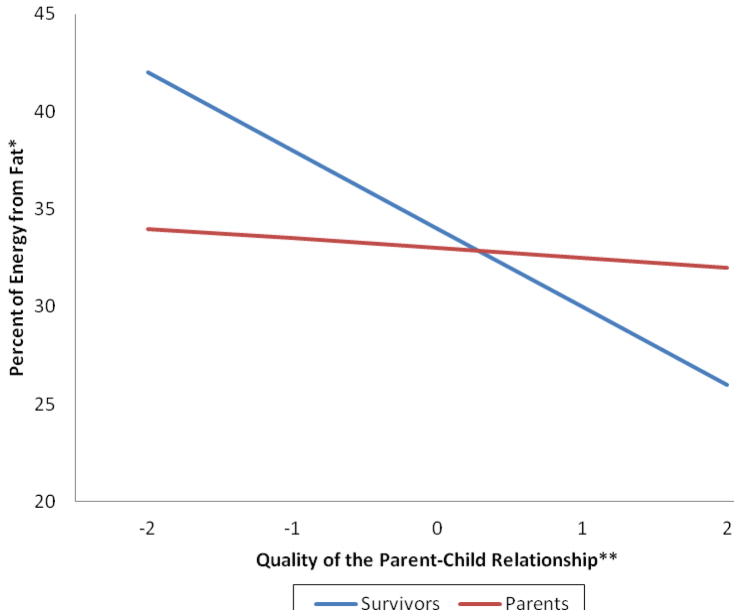Figure 1.
Graphical depiction of the different effects of parent-child relationship quality on dietary fat intake among childhood cancer survivors (N=170) and their parents (N=114)a
* To assess fat intake, the 17-item NCI multifactor screener was used.
** To assess the quality of the parent-child relationship, five items rated on a four-point Likert-type scale were adapted from Lawrence (33) that asked about general closeness, communication, similarity of views about life, degree of getting along, and similarity of views about diet and exercise.
a The figure shows that survivors reporting better than average parent-child relationship quality were significantly more likely to consume low-fat diets than those reporting poorer than average relationship quality. Parents who reported better than average relationship quality reported slightly lower levels of fat intake than those with poorer than average relationship quality, but the difference was not significant. Because relationship quality was grand-mean centered, −2 and 2 are the upper and lower possible values and 0 represents the mean.

